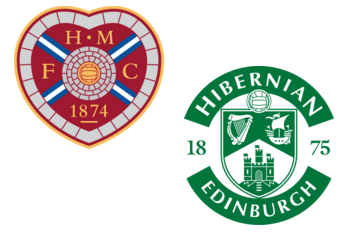A Scotland Yard’s Foggy Bottom


In 1875, two of Edinburgh’s soccer teams — Heart of Midlothian F.C, and Hibernian F.C. — faced off for the first time. The two teams, nicknamed “Hearts” and “Hibs,” now meet on the pitch regularly, and the games has become a cultural touchstone. The “Edinburgh Derby,” as the Hearts vs. Hibs league matches have been nicknamed, has taken place a few times each year since 1895, with a few exceptions. The most notable such exception was during the years coinciding with World War II, as league play was suspended.
But even with the war ongoing, the two faced off in non-league games. In one case, they were ordered to play, even though no one could see the game.
The match in question took place on January 1, 1940. The two sides met at Easter Road, the Hibs’ home stadium since 1893. Per the record books, the visiting Hearts won, 6-5. But that’s probably the least important part of the game.
That day, Edinburgh was engulfed by thick fog, reducing visibility to nearly nothing. The crowd, estimated to be about 14,000 fans, probably expected to the game to be called off — you can’t really play soccer if you can’t see your teammates or the ball. But this wasn’t a typical day. World War II was in full swing and German bombers had been attacking Scottish targets. The BBC had scheduled the day’s Hearts/Hibs matchup for its radio broadcast, and that broadcast was being shared with British service members overseas. There was nothing the UK could do to prevent the Germans from listening in on the broadcast, and the UK War Office didn’t want the Germans to know about the foggy conditions in Edinburgh. Canceling the game would have given that key fact away.
So, the two sides played their game as scheduled as best they could — and BBC radio tried its best to give a play-by-play.
It didn’t go so well.
We’re not really sure what happened in the game because no one could see the goings-on, at least not well enough to accurately report it. That included Bob Kingsley, the broadcaster that the BBC sent to cover the game live. Kingsley was instructed to call the game as if it were a sunny, clear day, even though he could only see two of the 22 players on the pitch. As the Guardian reported, “Kingsley set in place a series of runners between his commentary box and the pitch, in a futile attempt to ascertain what the hell was going on.” But this failed, as futile attempts by definition do. So Kingsley, guided loosely by cheers of the also-blind crowd, just made it up. For 90 minutes, he reported on a game happening only in his imagination.
The fictional game being broadcast was probably better than the real one, anyway. The actual game was marked by problem after problem; for example, the referee accidentally signaled halftime two minutes too early, and once he discovered the error, had to get all the players back on the pitch to finish the half. In the confusion, the Hearts grabbed two quick goals. And even after the game ended, the problems somehow persisted, because it wasn’t clear that the game was in fact over. Kingsley, himself, didn’t know when to stop his broadcast; per The Scotsman, he “continued to invent the action for a further 15 minutes” after the time expired. And he wasn’t the only one confused. The Scotsman continued:
Meanwhile, some Hearts players emerged from the dressing room to enquire as to the whereabouts of their team-mate, [left winger John] Donaldson, who had not followed them down the tunnel at the end of the match.
A search party was despatched, and the winger was found, doggedly patrolling his left flank and vainly calling the names of team-mates who had long since departed, demanding a pass and hoping that the ball would eventually emerge from the gloom.
In the end, Donaldson’s team triumphed, even if he — and most others — had no idea.
But at least the Germans never found out about the fog.
Bonus Fact: Scotland faced off against England in the world’s first international soccer match. The match occurred in 1872 and it ended in a 0-0 tie.
From the Archives: The Game Must Go On: How to play golf when Germans are bombing the greens.
Take the Quiz: Identify the country by some of its soccer teams.
Related: “The Ball is Round: A Global History of Soccer” by David Goldblatt. 4.3 stars on 52 reviews.
